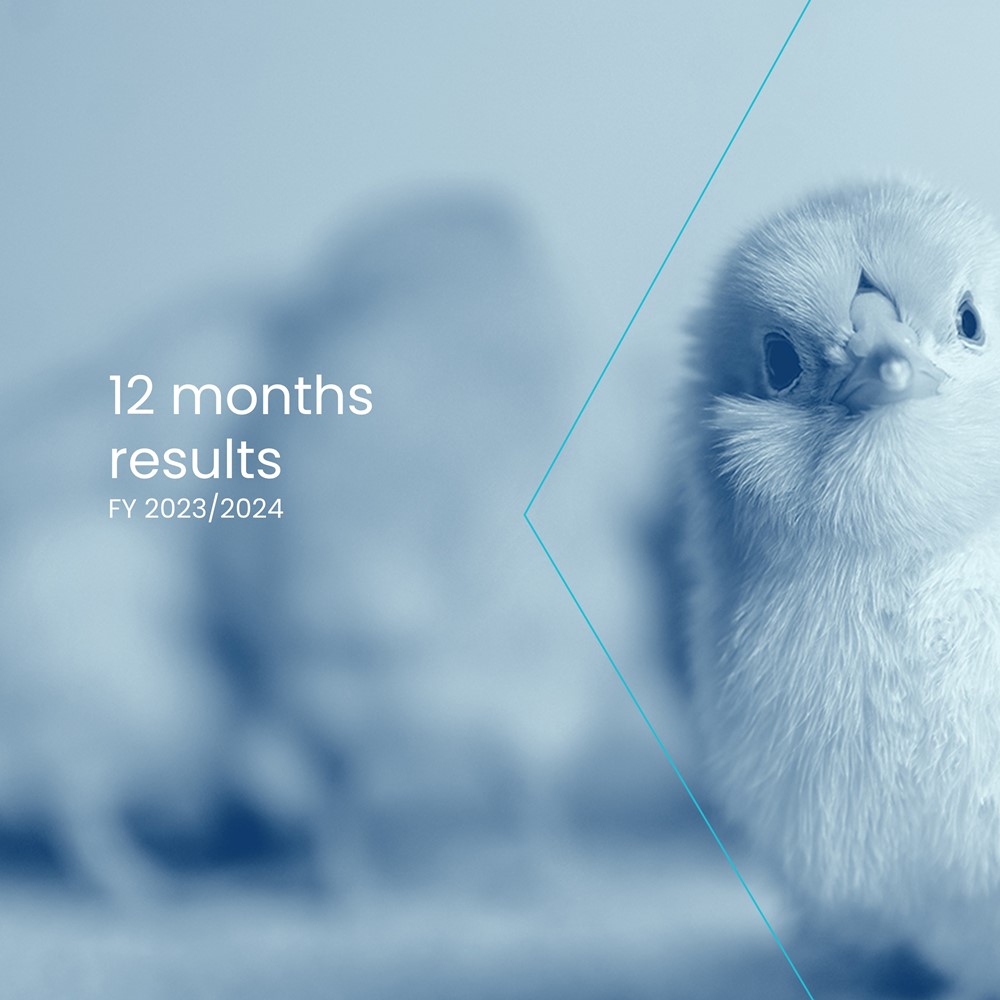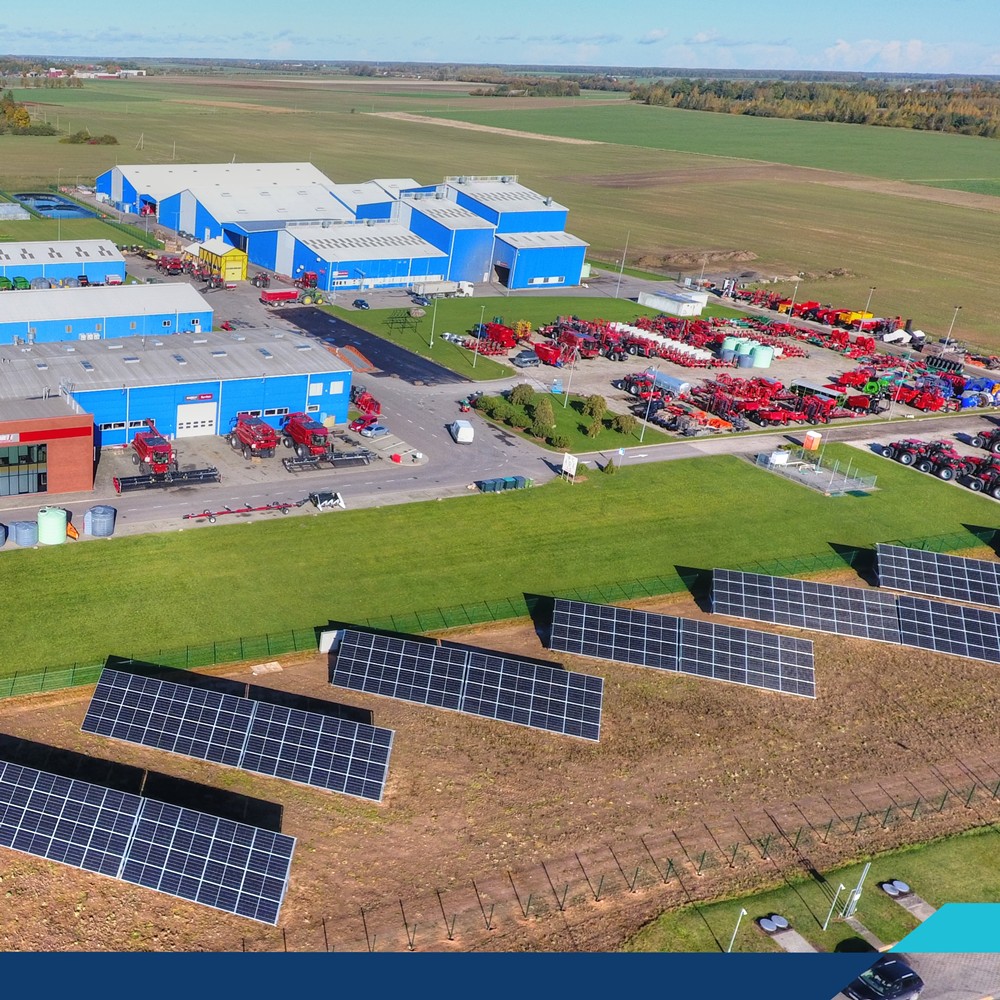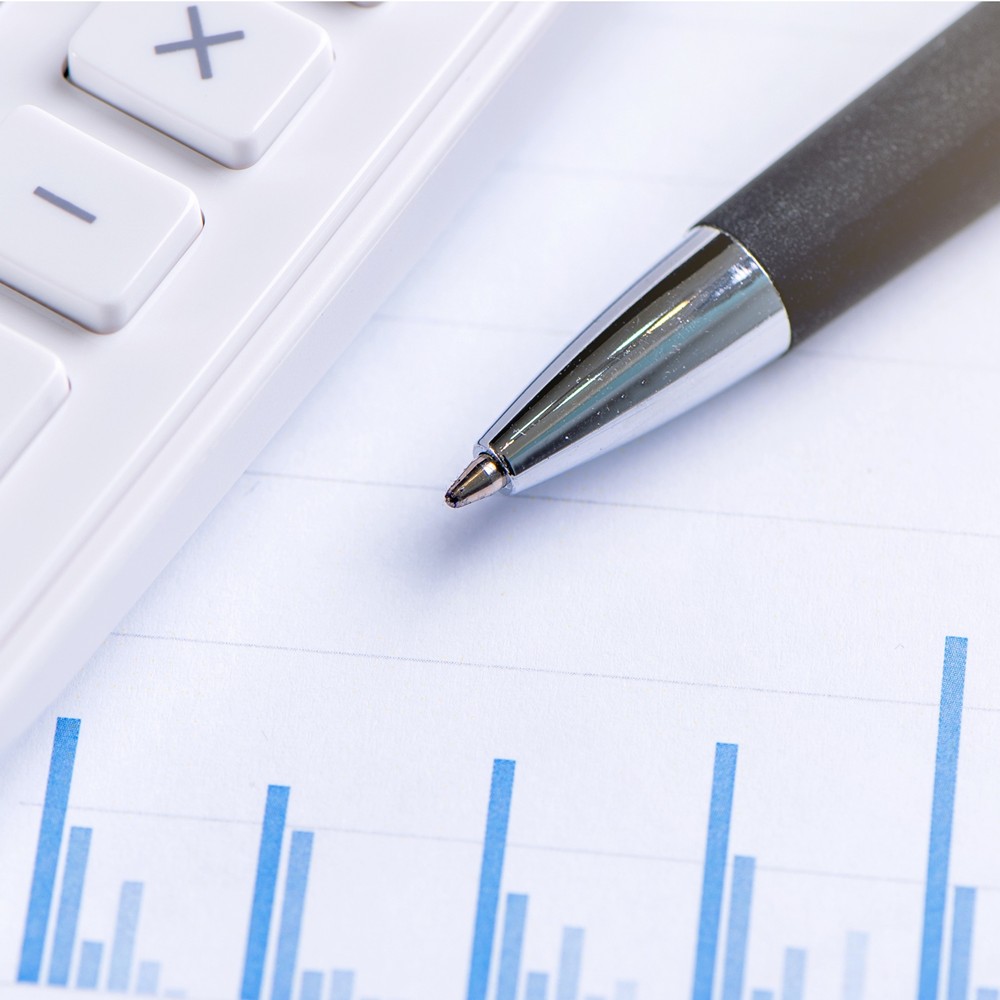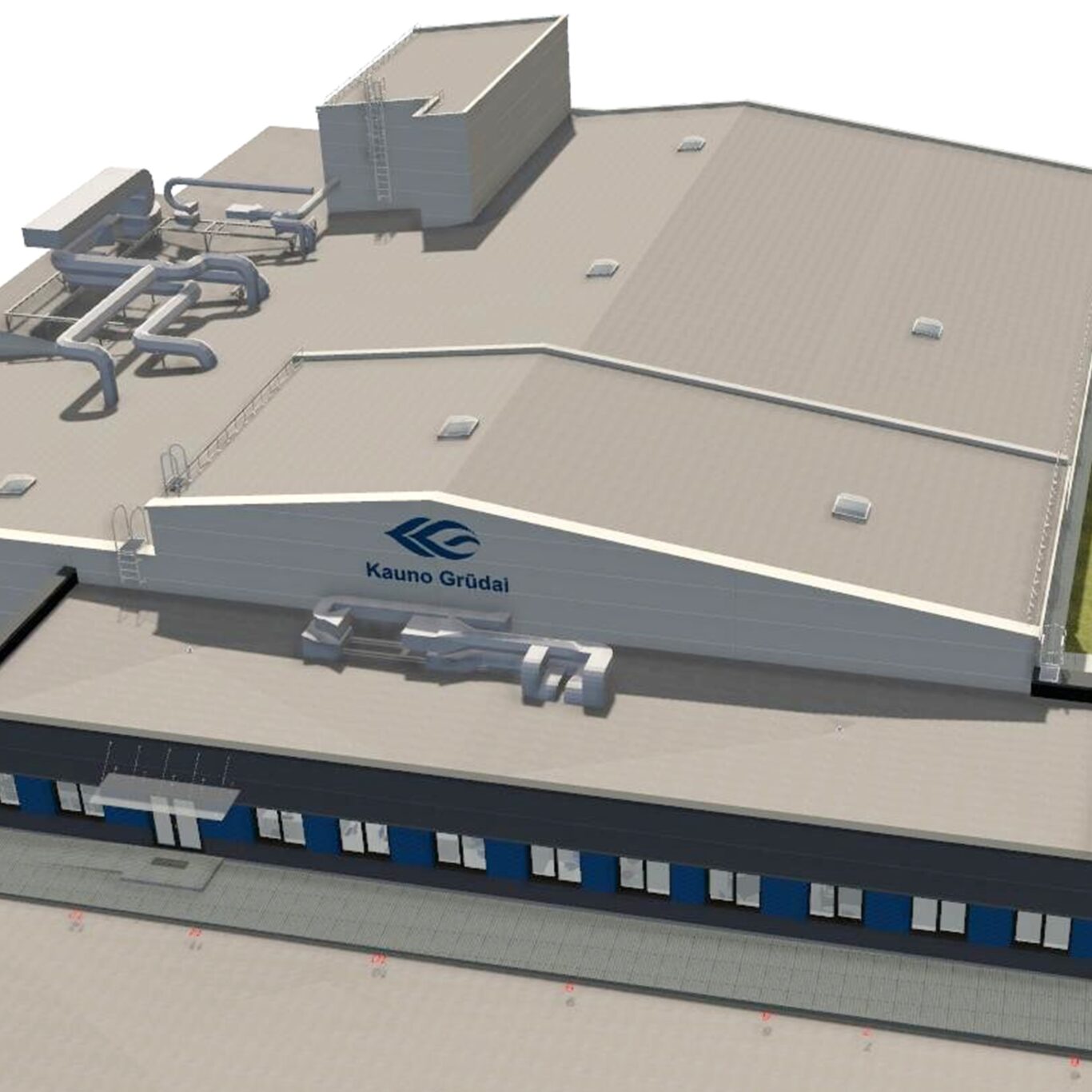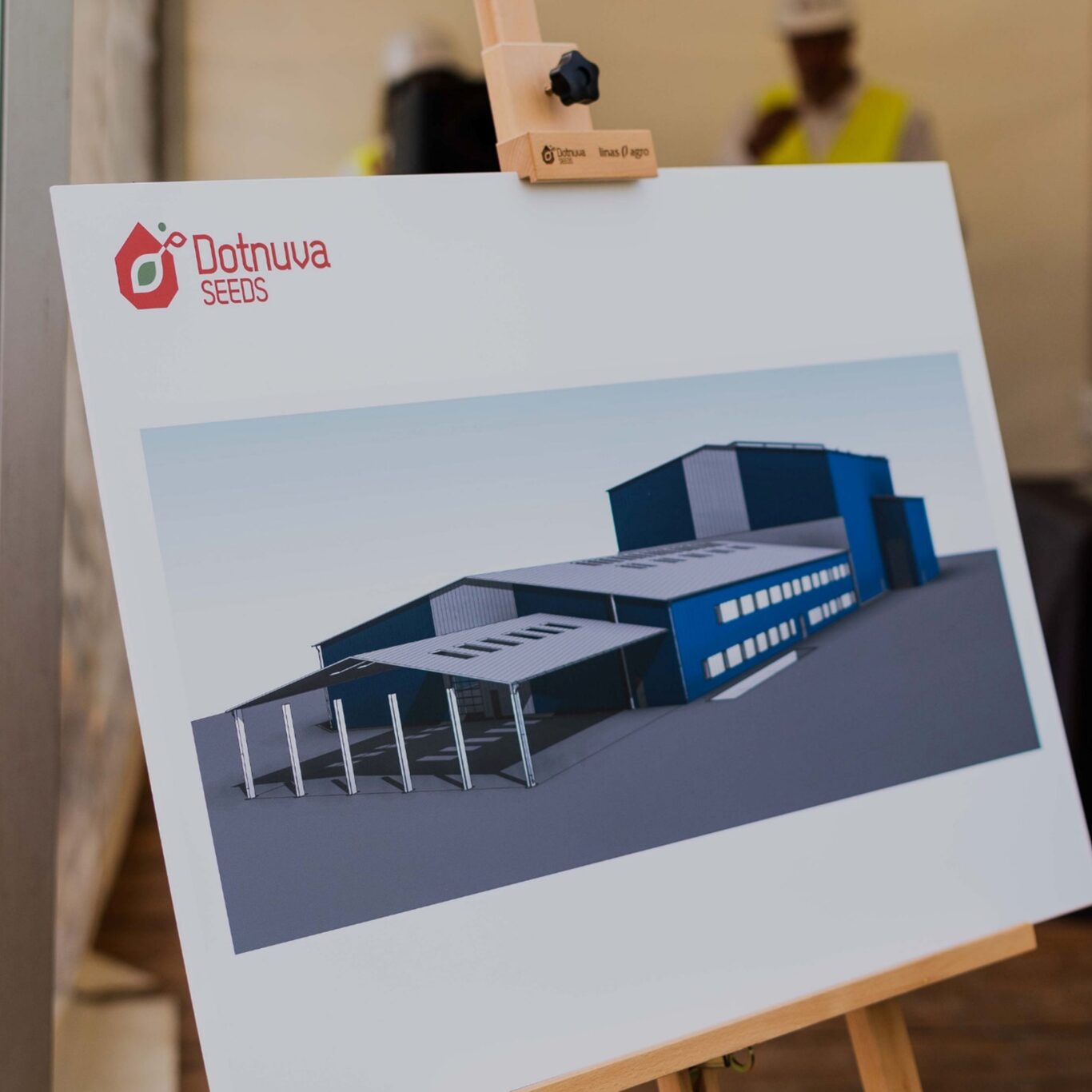Profits grow while revenue decline
The consolidated revenue of AB Akola Group and its controlled companies (the Group) for the twelve months of the financial year 2023/2024 exceeded EUR 1,506 million and was 25% lower compared to the corresponding period of the previous year.
The Group sold 3,025 thousand tons of various products, which is 18% less than in the same period last year.
Consolidated earnings before interest, taxes, depreciation, and amortization (EBITDA) for the twelve months amounted to EUR 75 million, 11% higher than in the previous year. Net profit increased by 27% to EUR 26 million.
| 2022/2023 12 months |
2023/2024 12 months |
2023/2024 compared with 2022/2023, % |
|
|---|---|---|---|
| Total trading volume, tons | 3,708,820 | 3,025,143 | -18 |
| Revenue, thousand EUR | 1,999,617 | 1,506,238 | -25 |
| Gross profit, thousand EUR | 137,969 | 152,028 | 10 |
| EBITDA, thousand EUR | 67,318 | 74,835 | 11 |
| Operating profit, thousand EUR | 41,492 | 47,384 | 14 |
| Net profit, thousand EUR | 20,817 | 26,334 | 27 |
Consolidated revenue for the fourth quarter of the 2023/2024 financial year decreased from EUR 499 million to EUR 382 million. Gross profit for the fourth quarter increased from EUR 25 million to EUR 48 million, and operating profit from EUR 1 million to EUR 22 million. Net profit amounted to EUR 17 million, compared to a net loss of EUR 4 million a year earlier
“The decline in revenue is mainly due to the fall in market prices, while the decline in volumes is due to a deliberate focus on higher profitability by avoiding less profitable transactions. While differing strongly in revenue, the two largest operating segments – Partners for Farmers and Food Production – generated virtually identical operating profits of EUR 21 million each. While the largest operating segment, Partners for Farmers, saw the biggest contraction in revenue during the year, all operating segments, even those that increased their sales volumes, experienced declining revenues and profits. A few businesses stand out from the general trend, which generated higher gross profits than last year even with declining revenues. These include the fertilizer trade, poultry business, milk production, the production of instant foods and ready-to-use products. The network of grain elevators providing services to farmers did well in the financial year, with a 27% growth in revenue and 29% growth in gross profit.”
AB Akola Group’s CFO Mažvydas Šileika
In the financial year 2023/2024, the merger of the two business segments into a new segment, Partners for Farmers, resulted in revenue of EUR 1,137 million and accounted for 75% of the Group’s total revenue. The segment’s gross profit was EUR 82.6 million, and its operating profit was EUR 21.0 million.
“In the financial year ended, we purchased 34% less grain and 12% more rapeseed overall from farmers and on the market. Our grain elevators in Lithuania and Latvia handled grain volumes similar to last year. Meanwhile, the volumes of raw agricultural materials transported from Ukraine via Poland shrank considerably due to import and transit restrictions on the Polish side. Most of the grain bought and sold was of a lower quality than last year, namely second-class wheat. The poor quality of the grain has made its marketing a challenge. We sold 1,472 thousand tons of cereals and oilseeds, 30% less than the previous year, with a 48% drop in revenue and a 21.5% drop in gross profit. Raw feed materials and feed additives were sold at virtually the same level as last year, or 553 thousand tons, but at lower prices due to competition from products of Russian and Belarusian origin, while exports from Ukraine via Poland were again severely hampered. Compound feeds and premixtures were 13% higher than last year. Still, sales were down 11% on a relative basis compared to the previous year when two divested subsidiaries in Russia and Belarus were still accounted for. In total, sales of feeds, raw materials, and premixes fell by 20%.”
M. Šileika
The Group’s revenue from certified seeds, fertilizers, and plant protection products fell by 20% to EUR 246 million.
“One of the most promising and profitable activities is seed supply. The seed factory in Dotnuva exceeded its annual production capacity of 30 thousand tons of seeds and produced almost 32 thousand tons of certified seeds in the reporting period, 15% more than last year. We also sold 19% more seed than at the same time last financial year. We are currently building a second seed factory in Latvia, which will be operational in mid-2025 for EUR 9.5 million and will produce seed for Latvian and Estonian farmers.”
M. Šileika
Although fertilizer sales volumes were 6% above last year’s figures, market prices were much lower than the previous year, resulting in a 33% drop in revenue for the fertilizer business. However, gross profit was 24 times higher than in the less successful previous year.
“For fertilizer sellers, the second year in a row was a difficult one, as they had to compete with sellers of Russian and Belarusian fertilizers imported in various ways, and fertilizer prices dropped. The strategic decision to cooperate with the Baltic intermediaries, giving them a share of the profits and reducing the operational risk, proved to be a good one.”
M. Šileika
Sales of plant protection products and micronutrients grew by 9%, but revenue fell by 2% and gross profit by 73% due to price fall.
“In the first half of the financial year, plant protection products and micronutrient sales were sluggish due to low grain prices and the impact of winter crops in Latvia and Estonia. Spring trading was very competitive due to the build-up of stocks from autumn, and trading margins were reduced, although traditionally this is one of the more profitable activities.”
M. Šileika
Revenue from the sale, rental, and servicing of agricultural machinery and equipment amounted to EUR 85 million, a contraction of 10%, while gross profit from these activities fell by 18% to EUR 11 million.
“The agricultural machinery and equipment sector faced different buyer sentiment in the three Baltic countries: in Lithuania, the mood was much more optimistic, while in Estonia, it was more stagnant. Purchasing decisions were linked to the 2023 harvest results and the prospects for the 2024 harvest. The overall trend is seen as a demand for rental services and expanding the range of services. Rental income grew by 16%.”
M. Šileika
The Food Production segment’s revenue, which accounts for 26% of the Group’s total revenue, amounted to EUR 399 million. The gross profit of this business was EUR 58.9 million, and the operating profit was EUR 21.1 million.
“Our food manufacturing sector is showing an increase in operating profitability. Poultry sales volume is up slightly but steadily, and while revenue was down, gross profit in this business was up 104%. Flour, baking mixes, and breadcrumbs were also up, and the decline in revenue did not affect gross profit in this business, which was up 28%. Sales of instant foods and ready-to-eat products were also down, and revenue also contracted, but gross profit grew by 48%. All the ongoing investments in food manufacturing companies should further increase profitability in the next financial year and beyond.”
M. Šileika
The Farming segment’s revenue, which represents 3% of the Group’s total revenue, amounted to EUR 43 million. This business’ gross profit was EUR 6.5 million and operating profit was EUR 5.3 million.
“Both crop and milk production revenues declined. Both activities were profitable, but crop farming revenue fell by 15% and gross profit by 74%, although we sold 19% more products than the previous year. About 40% of the production was second-class wheat, so the poor quality of the wheat strongly impacted the profitability of crop production. Gross profit from milk production grew by 28% despite a 10% drop in income. Milk production grew by 2%, and milk quality was relatively good, with an increase in annual milk yield per cow from 11.4 tons to 11.8 tons. This indicator has been steadily increasing on our farms for several years.”
M. Šileika
The Other Products and Services segment accounted for 1% of the total Group’s revenue and amounted to EUR 19.2 million. The gross profit from this activity was EUR 4.0 million, and the operating loss was EUR 0.06 million.
“Revenue from extruded products, mainly composed of pet food, grew by 4% y-o-y and accounted for 61% of the Segment’s revenue. Gross profit from this activity grew by 248%. Revenue from veterinary pharmaceuticals sales declined by 10% and gross profit by 23.5%. Revenue from pest control and hygiene product sales grew by 5%, and gross profit grew by 31%. Although these activities represent a very small part of the Group’s revenue, they are growing in importance and profitability.”
M. Šileika
AB Akola Group (formerly AB Linas Agro Group) operates the largest agricultural and food production group in the Baltics, employing 4.9 thousand people. The group operates along the entire food production chain from farm to fork, producing, preparing, and marketing agricultural and food products, and providing goods and services to farmers. The Group’s financial year starts on 1 July.
Read more:
.
Contact person

